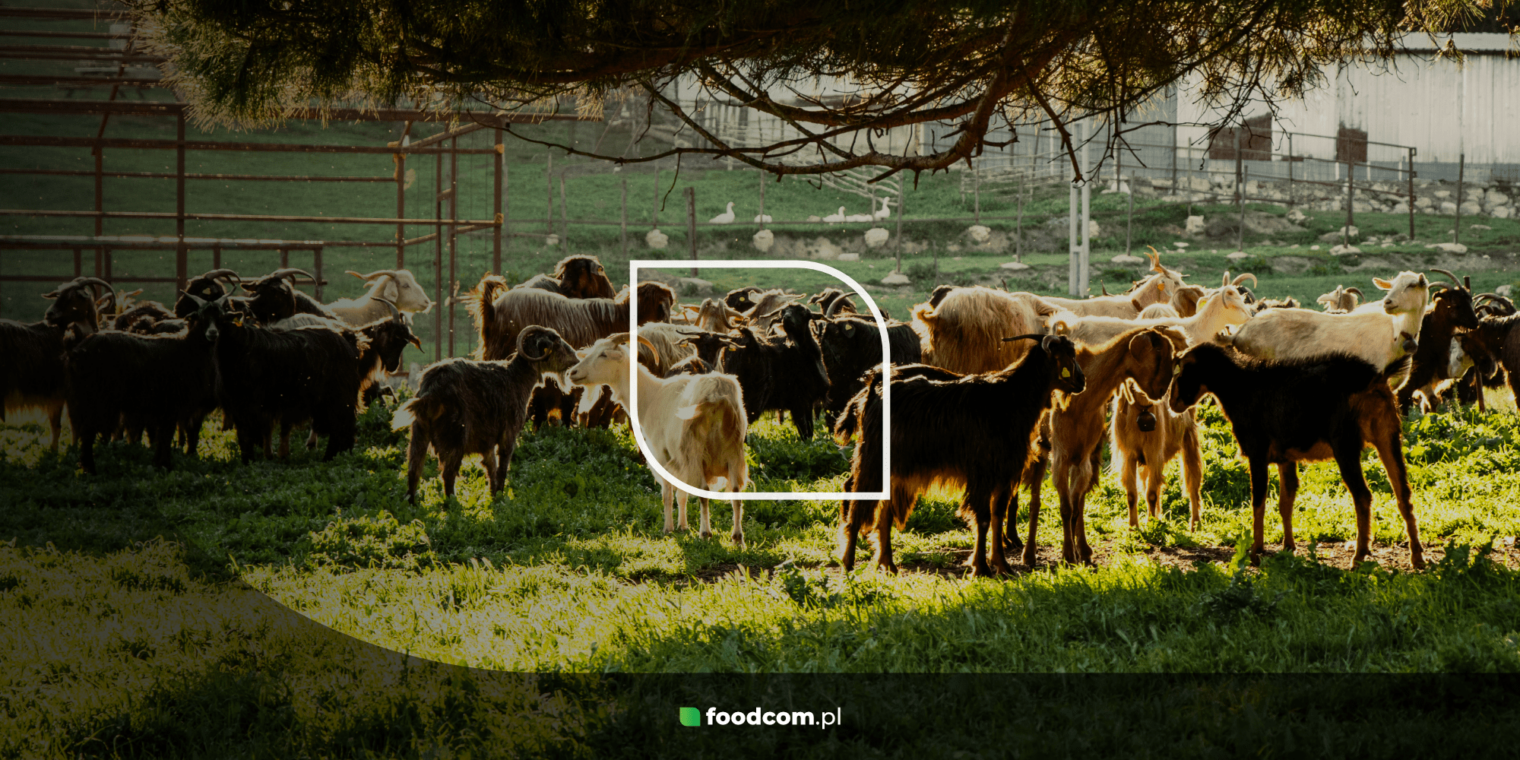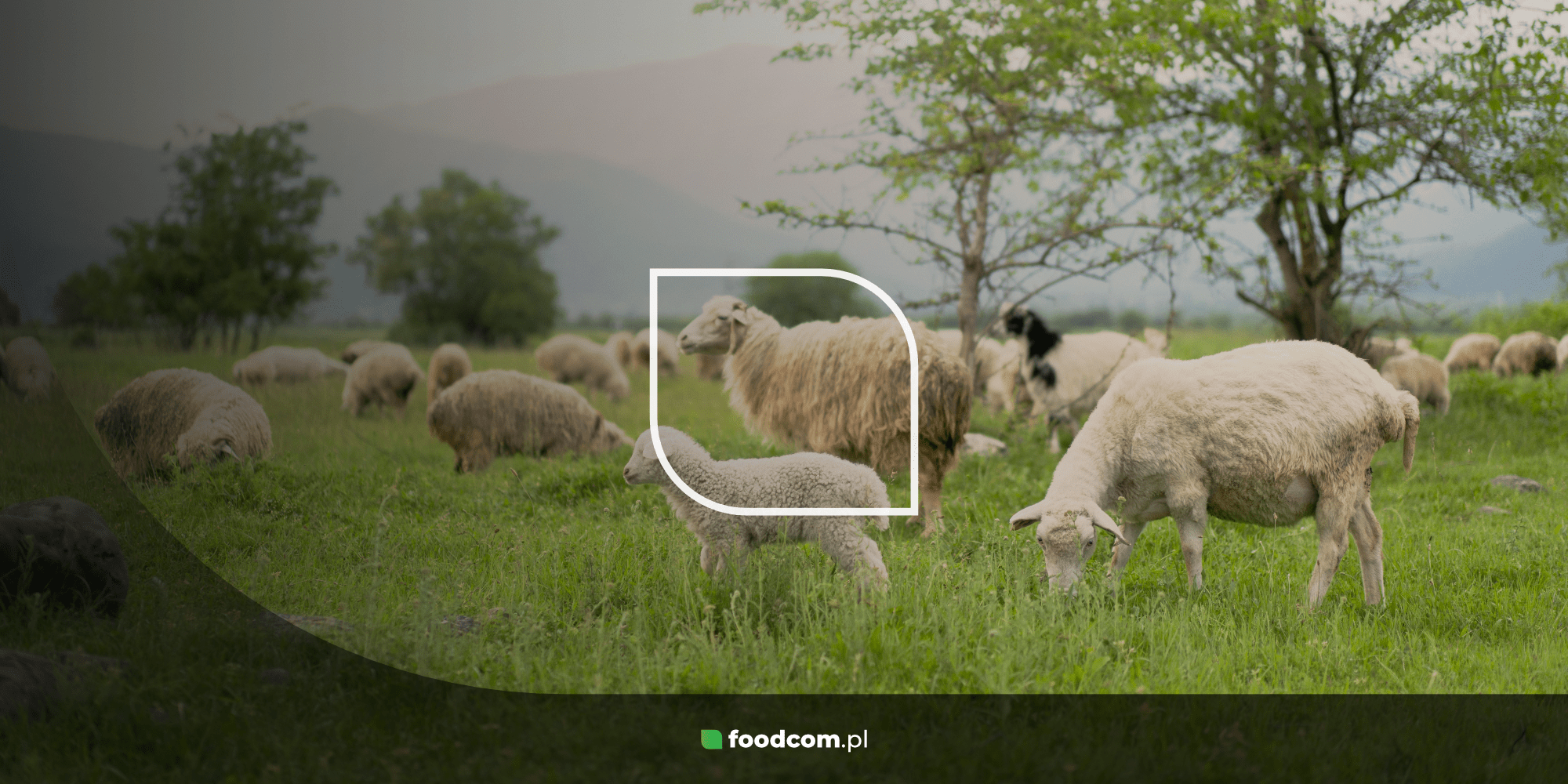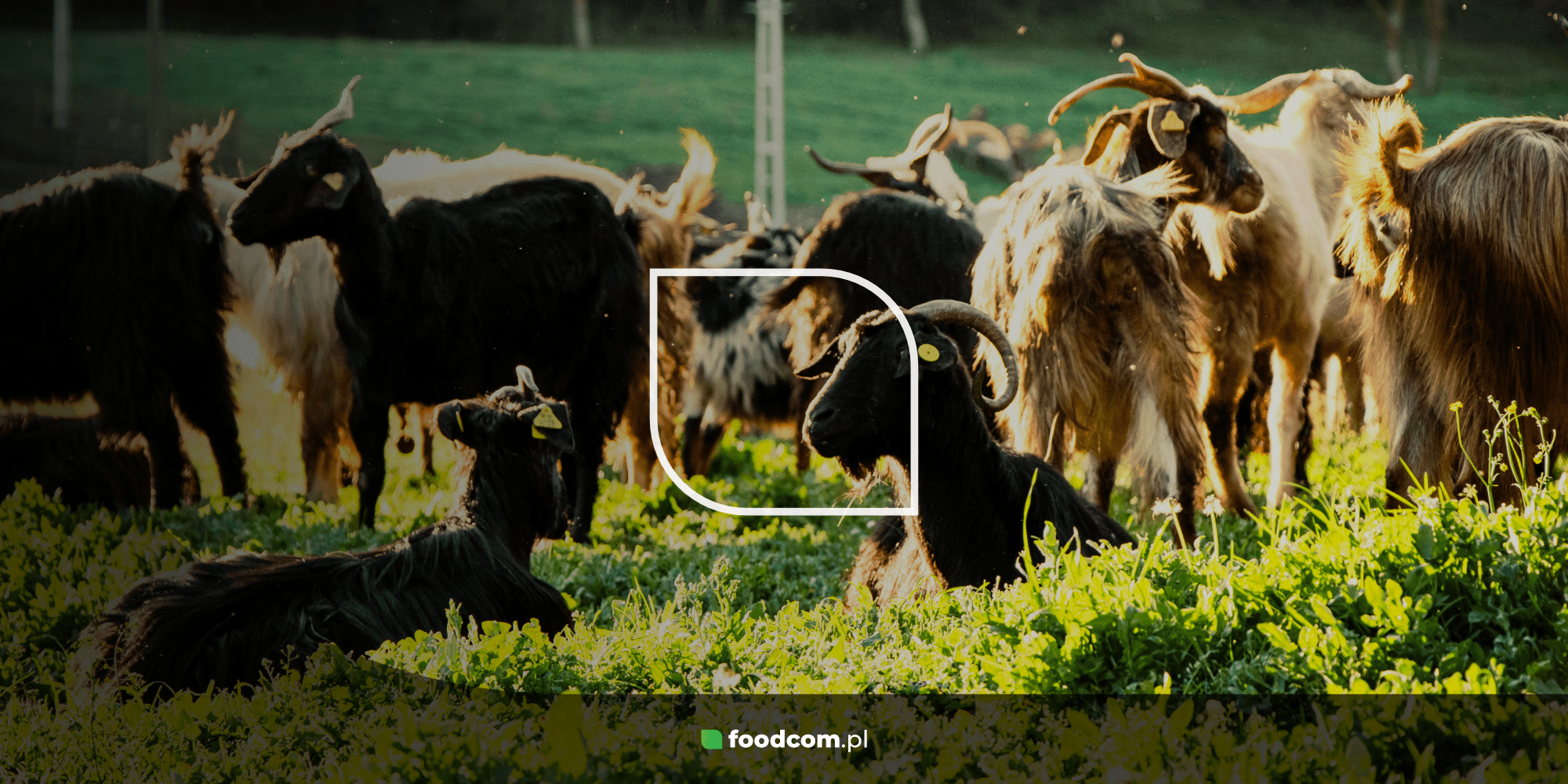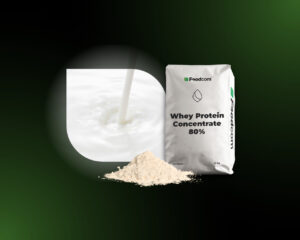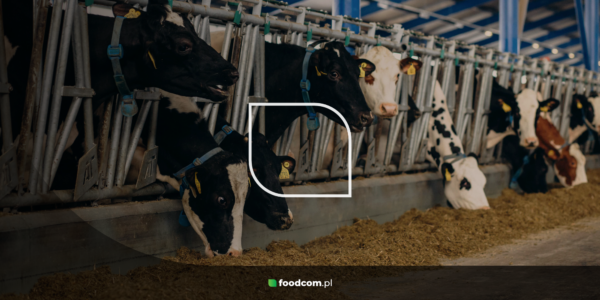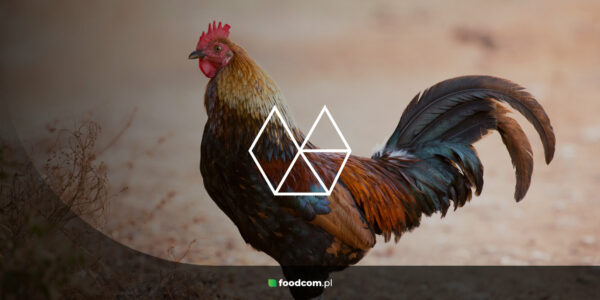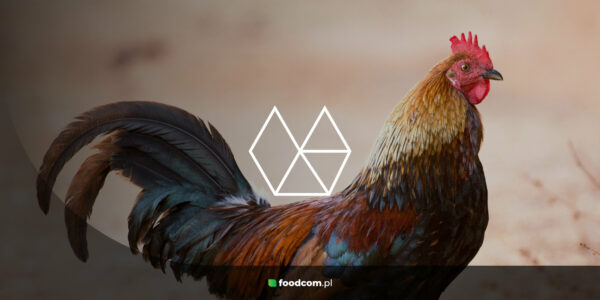- Goat and sheep feeds provide essential nutrients to support the healthy development and performance of the animals.
- Diets should be balanced and adapted to the specific needs of goats and sheep, taking into account roughage and concentrates.
- The feed production process requires careful selection of raw materials and adherence to strict quality standards.
- Casein, present in milk, is a key protein to support milk production in goats.
Feed plays an important role in the rearing of goats and sheep, providing them with the necessary nutrients to support healthy growth, milk yield and overall animal condition. A well-balanced diet is of particular importance here, as their digestive system differs from many other animal species, requiring an appropriate approach to nutrition. In this article, we will outline what types of feed are most commonly used in goat and sheep farming, how they are produced and what to look out for when composing a diet.
What is feed for goats and sheep?
Goat and sheep feed is a mixture of various nutrients that aims to provide all the necessary nutrients. The right feed should contain protein, fats, carbohydrates, minerals and vitamins to support the animals’ proper development, improve their condition and increase their milk and meat yield. Depending on the type of farming and specific needs, feeds vary in composition and form of administration.
The basic types are:
- roughages – form the basis of the ruminant diet,
- concentrated feeds – are richer in energy and protein.
Feed additives, such as minerals, vitamins and supplements, are also important components of goat and sheep feed to make up for any dietary deficiencies.
Goat feed – what does it contain?
As animals with a unique metabolism, goats require feed rich in protein, fibre and minerals. An important component of their diet is roughage, which mainly consists of hay, green fodder and a variety of fodder crops. Goats have the ability to take up feed from a variety of sources, which means that plants that are difficult for other animals to digest, such as shrub leaves or tree branches, can also be used in their diet .
Concentrated feeds, i.e. concentrated sources of energy and protein, are another important part of the goat’s diet . Among the most popular are cereal mixtures such as oats, barley or maize, which provide the goats with the energy necessary for their bodies to function properly. Of the additives, it is worth mentioning the ingredient distillery stock, a by-product of the distilling industry valued for its high protein content.
Feed for sheep – how to compose their diet?
Sheep, like goats, need a varied and well-balanced diet, based primarily on roughage. Hay and green fodder form the basis of their diet, providing the fibre necessary for the proper functioning of the digestive system. In addition, they can be fed a variety of forage crops, such as alfalfa, clover or meadow grass, which provide protein and vitamins.
Concentrated feed for sheep is a mixture of cereals, supplemented with protein additives such as soya meal, soya protein concentrate or distillers’ broth, which promote the growth and development of the animals. It is also worth mentioning that sheep have specific mineral needs, especially in terms of calcium and phosphorus, so their diet should be enriched with appropriate mineral preparations. Calcium chloride or phosphates, for example, can be used for this .
The process of producing feed for goats and sheep
The production of feed for goats and sheep starts with the right selection of raw materials. High-quality forage crops such as hay or green fodder are dried and processed in a way that ensures that as many nutrients as possible are retained. In the case of concentrated feed, cereals are milled and mixed with protein and vitamin and mineral additives to create a complete product.
One interesting additive is distillery stock, which is produced as a by-product of alcohol production. It is rich in protein and other nutrients, making it an excellent addition to concentrated feed. More and more livestock farmers appreciate it for its nutritional value and low price.
The production of the feed is carried out to exacting standards in order to provide the animals with a high-quality feed. Parameters such as moisture, protein and mineral content are controlled during the production process to ensure a feed that is tailored to the needs of a specific group of animals.
Casein – what is it and why is it important?
Casein is present in mammalian milk and plays an important role in the nutrition of young animals, including goats and sheep. What is casein? It is a protein with a high biological value, rich in amino acids essential for growth and tissue regeneration. In the case of dairy goat farming, an adequate diet supports the production of casein-rich milk, which is important for both drinking milk and cheese production. Adequate dietary protein is particularly important during the growth and intensive milk production phases.
A balanced diet for health and productivity
A fundamental aspect of feeding goats and sheep is a balanced diet that provides all the necessary nutrients. Roughage should form the basis of the diet, while concentrate feed and mineral supplements must make up for any deficiencies. Regular monitoring of the health of the animals and the adaptation of feed to their individual needs and life cycle is of paramount importance to keep them in good condition and to increase milk or meat production.


